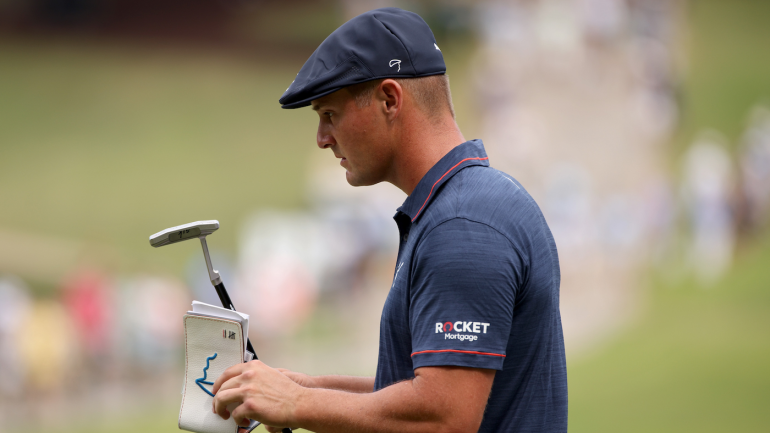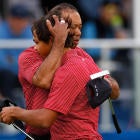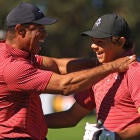
There will likely be some changes coming to equipment on the PGA Tour in 2022. Though no technological rollback is on the horizon as it relates to the golf ball and clubs, modern green-reading books are probably about to be outlawed at PGA Tour events.
On Monday, a memo was sent by the Tour to players and caddies that stated, "Beginning January 1, 2022, during competition rounds, players and caddies will only be able to use a 'Committee Approved yardage book. The Committee Approved book will be very similar to a traditional yardage book and, with respect to green details, will have only general information on slopes and other features."
This local rule is currently "being developed by the USGA and R&A" and it will still require a PGA Tour Player Advisory Council vote later in November, but it seems almost certain that this rule will go into effect for the first event of 2022 when golfers tee it up at the Tournament of Champions.
This is a subtle but meaningful shift away from the super-detailed green books players carry around that include gradient and laser-detailed information, and it's an attempt to "return to a position where players and caddies use only their skill, judgement and feel along with any information gained through experience, preparation and practice to read the line of play on the putting green," according to the memo.
Think of this as the "Bryson DeChambeau Rule". DeChambeau has become famous for the detail in his yardage books, and while he can still write all the mathematical formulas he wants to note, he can no longer obtain them outside of his own experiences.
This is also where the rule gets interesting. The memo notes that players can transfer all previous handwritten notes that "also meet the new restrictions into the approved book" but "no devices, levels or other technology may be used to gather information to be kept as notes, and no information may be copied from another source into the approved book."
The reason that might be confusing is because players and caddies might not remember exactly where they got some of the information that's in their current books. Was it from an exterior source -- perhaps a company that shot a green with its lasers -- or was it from the third round of an event the player played in 2019 when he remembered a putt breaking a cup the opposite way he thought it was going to break.
Regardless of the minutia and how it gets worked out, this is a good move for the PGA Tour. It adds back in an element of skill and athleticism and should create some (small) separation between the most skilled golfers and those who are not as skilled. It reintroduces elements of wisdom, trust, commitment and mindfulness -- often present among the very best players -- and removes math, which levels the playing field and probably hurts stars and superstars a bit.
Some people think this hurts somebody like DeChambeau, who has leaned heavily on his book over the years, but I think it actually helps him. He's been deep in the gradient game for years now, and he'll be able to recreate it with his own eyes better than almost anyone else in the world. Remember, you can still use your own experience and expertise to create your own green-reading book, you just can't use external sources to create it for you. It may take him a bit of time to adjust, but I suspect he'll continue to thrive.
This will be a welcome change overall at the professional level and a good move in the right direction when it is likely implemented starting two months from now.

















